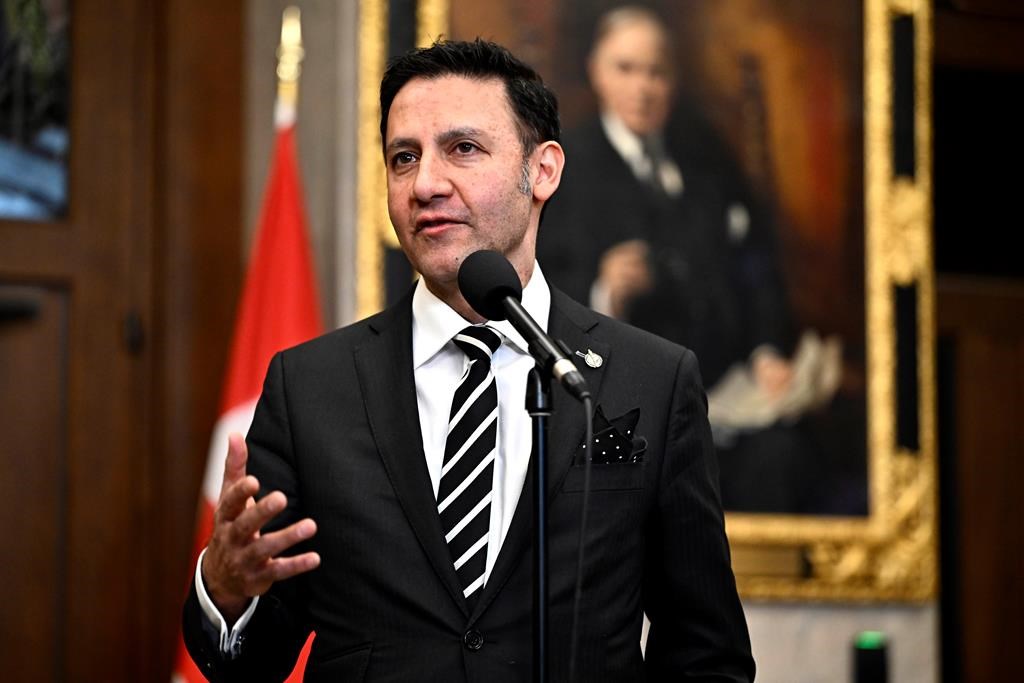British guitarist Wilko Johnson faces death with courage – and rock ‘n ‘ roll
Posted Feb 4, 2013 4:10 am.
This article is more than 5 years old.
WESTCLIFF-ON-SEA, England – Living has been full of surprises for Wilko Johnson. So has dying.
Four decades in the rock ‘n’ roll trenches have brought the British guitarist obscurity and fame, followed by turmoil, more obscurity and rediscovery. Now the greatest rock star you may not have heard of — songwriter for rabble-rousing 1970s band Dr. Feelgood — is embarking on a farewell tour. Unlike some musical goodbyes, this one is permanent. Late last year, Johnson was diagnosed with terminal pancreatic cancer and told he had just months to live.
He says he has never felt more alive.
The 65-year-old musician says that in the weeks since his diagnosis, he’s been unexpectedly happy — “In fact it amounted at times to euphoria.”
“I suddenly found myself in a position where nothing matters anymore,” he said. “I’m a miserable so-and-so normally … I’d be worrying about the taxman or all the things that we worry about that get in the way of the real things. And suddenly it doesn’t matter. All of that doesn’t matter.
“You walk down the street and you feel intensely alive. You’re ‘Oh, look at that leaf!’ You’re looking around and you think, ‘I’m alive. Ain’t it amazing?'”
Johnson has said no to chemotherapy treatment that doctors say may prolong his life by a matter of months. He has responded to his diagnosis with a surge of creativity, playing gigs in Japan and planning a goodbye tour of Britain for March. He’s even going back into the studio to record a new album.
“After getting this diagnosis, I suddenly find myself writing bloody songs again,” said a relaxed and garrulous Johnson in an interview at his home, a modest two-story row house in a faded, windblown seaside town of Westcliff-On-Sea, 40 miles (64 kilometres) east of London and just a few miles from where he grew up.
“I think there will be an album. It’s going to be rough and ready, because we’ve got about three or four days and we’re just going to go in and to bash it down. We’re not going to twiddle with anything.”
Wilko Johnson — a play on John Wilkinson, the name he was born with in 1947 — is a mix of clown, curmudgeon, showman and scholar whose life is both inspiration and caution for would-be rock stars.
An unlikely rocker who studied Anglo-Saxon literature and worked as a schoolteacher before joining Dr. Feelgood, he is a cult hero — more influential than famous, and cherished by his fans. Recently his following has grown to include viewers of HBO fantasy series “Game of Thrones,” in which the sepulchral-looking Johnson appeared as silent executioner Ilyn Payne.
“They said, all you’ve got to do is stand around and look menacing,” said Johnson of his acting debut. “Well, I can do that by the yard.”
Johnson’s menacing stare was a memorable feature of Dr. Feelgood, which burst to fame in the early ’70s, then blew apart — but not before energizing many of the musicians who went on to create Britain’s punk explosion. At a time of flamboyant glam and indulgent prog rock, they were something different — scrappers in cheap suits, playing a then-unfashionable brand of blues and R&B. Video clips of the band performing tracks such as “Roxette” reveal the explosive chemistry of charismatic singer Lee Brilleaux’s raw vocals and Johnson’s choppy guitar style, rooster strut and thousand-yard glare.
“We didn’t look like the other bands around here — they were all wearing frocks and talking about going to Mars,” Johnson said. “We looked like kind of shoddy bank robbers.”
For a time, it went like a rock ‘n’ roll dream — a growing following, four albums including a U.K. chart-topper, tours of the U.S., a deal with CBS records. Then came the catastrophic argument that saw Johnson stalk out of the band for good in 1977.
“And then punk came up,” Johnson said, “and we kind of got swallowed in the aftermath.”
After that near-miss with the big time, Johnson played with Ian Dury’s band, The Blockheads, before going solo with the Wilko Johnson band. He has built significant fan bases in Britain and in Japan, where he has played many times over the past 30 years.
A wider audience got to know him through Julian Temple’s 2009 documentary “Oil City Confidential,” which restored Dr. Feelgood to its rightful place as punk precursor — with Johnson as its wide-eyed shaman and storyteller.
The movie also burnished the mythology of Johnson’s hometown of Canvey Island in the Thames Estuary of southeast England.
Johnson recalls Canvey in his youth as “a cowboy town,” with dirt roads and wooden bungalows built on reclaimed marshland beside an oil refinery. The blues-loving members of Dr. Feelgood liked to call it the Thames Delta, playing up its exoticism for eager journalists.
“Oil City Confidential” also told a familiar rock ‘n’ roll story — the close-knit band of brothers torn apart by the pressures of the road.
“We were just such good friends,” Johnson said. “And on the way up you felt this absolute power in the friendship we had. No one could penetrate that.”
But by the end, he says, “I’d learnt the art of solving all problems in the world by slamming a door.”
He regrets his impetuousness now, and is keen to attribute the success of Dr. Feelgood to Brilleaux, who died of lymphoma in 1994.
“He just had this vivid personality. I can remember asking somebody about him when we’d decided to do a band: ‘That Lee bloke, can he sing at all? Because if he can just sing a little bit, he’s a star.'”
Johnson says he doesn’t mind that stardom ultimately eluded Dr. Feelgood. (A band of that name still exists, though it contains no original members).
“I never meant to do it, so everything that’s happened with rock ‘n’ roll has been an adventure, really,” he said.
Terminal illness has eased his concerns about the band’s legacy.
“People go, ‘You influenced so many of the punk bands. You started this and you did that.’ That may well be right, but it’s all part of the stuff that doesn’t really matter now. It’s been done.”
Still it’s hard, sometimes, not to reflect on what might have been.
“If we’d all done just what we were told, taken the advice of management, if they could have packed us all up in flight cases after every gig and stored us away so we couldn’t do anything (until) we get out there and played — I’m pretty sure we’d be multimillionaires.
“But we didn’t. We were geezers from Canvey Island. We were great friends, and we fell out.”
Johnson says he is not afraid of dying — though he is afraid of illness. He lost his wife to cancer eight years ago, and fears putting his loved ones through the sense of helplessness he felt then.
For now, though, he feels fine. He hopes it lasts long enough to give his fans a rousing send-off. Despite the pain of saying goodbye to friends, he found the recent shows in Japan exhilarating. Music has lost none of its power to thrill.
“The last number we did (in Japan) was Chuck Berry’s ‘Bye Bye Johnny.’ You’ve got the crowd, you’re all going ‘Bye, bye, bye, bye,'” Johnson said, waving his hands.
“And there was a dry eye in the house, actually — it was mine. I wasn’t feeling choked and sad or anything like that. I was thinking, ‘Oh man, what a great gig!”
____
Jill Lawless can be reached at: http://Twitter.com/JillLawless










